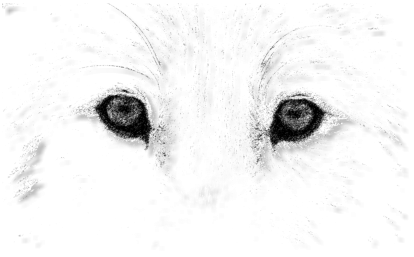
Colonel
Derek
Eichel
in
The
Killing
Game
Series
is
a
complicated
story—at
least
from
Colonel
Eichel’s
perspective.
At
42
years
old,
Eichel
is
a
retired
Jagdkommando
operative
now
working
for
INTERPOL
under
the
management
of
Rolf
Schumann.
Their
part
-
nership
began
three
years
before
Eichel’s
retirement
when
Schumann
recruited
him
at
INTERPOL
headquarters
in
Lyon,
France,
for
a
sector
chief
position
in
Frankfurt.
However,
Schumann
had
something
very
different
in
mind.
That
role
marked
Eichel’s
introduction
to
Frederich
Stultz
and
the
start
of
his
undercover
operations
on
Heinrich
von
Schäfer’s
neo-Nazi
schemes.
But
that’s
just
the
backstory.
What
you
came
to
hear
about
is
Eichel and Allina.
Allina
first
learns
that
Eichel
is
a
retired
Jagdkommando
opera
-
tive
because
he
tells
her,
which
sparks
her
curiosity.
She
quietly
wonders
why
a
retired
colonel
would
serve
as
Stultz’s
aide.
However,
this
question
takes
a
backseat
to
her
primary
focus:
es
-
caping
the
Mittelstädt
Estate.
Eichel’s
military
background
only
makes her goal seem more daunting.
From
their
first
official
meeting,
Allina
struggles
to
understand
Eichel.
His
demeanor
unsettles
her;
she
recalls
his
voice
from
the
long,
tense
journey
that
took
her
from
New
York
to
Switzerland
and
eventually
to
the
estate
in
Kreuth.
The
way
he
looks
into
her
eyes
reminds
her
of
Ives’
“interrogation
face,”
a
blend
of
intensity
and
control.
Over
time,
through
their
daily
interactions,
Allina
pieces
together
more
about
Eichel’s
personality,
filling
in
the
gaps
with her writer’s imagination.
But
Eichel’s
serious
gaze
has
little
to
do
with
suspicion.
It
reflects
his
internal
struggle.
The
more
time
he
spends
around
Allina,
the
more
he
falls
in
love
with
her.
“She’s
another
man’s
wife,”
he
tells
himself
repeatedly,
shutting
down
his
emotions
to
focus
on
pro
-
tecting
her.
Yet,
in
quiet
moments,
he
imagines
what
life
might
be
like
if
she
weren’t
married.
Allina
is
precisely
the
kind
of
woman
he
admires—loyal,
strong,
and
trustworthy.
Her
unwavering
love
for
Ives,
whom
von
Schäfer
schemed
to
make
her
believe
is
dead,
is
a
fortress
around
her
heart
that
no
one,
not
even
Eichel,
can
penetrate.
He
respects
her
deeply
for
it,
as
he
holds
marriage
as
an institution in the highest regard.
As
Allina
grows
less
desperate
to
escape,
Eichel
tries
to
ease
her
time
at
the
estate.
He
introduces
her
to
his
partner,
Hans,
a
German
Shepherd
and
Belgian
Malinois
mix,
who
becomes
her
constant
companion.
Hans’
presence
is
both
a
comfort
to
Allina
and
a
calculated
choice
by
Eichel,
who
uses
the
dog
to
maintain
an
open dialogue with her.
However,
Eichel’s
greatest
fear
becomes
a
reality:
Allina
executes
her
escape
plan.
After
months
of
careful
strategizing,
she
makes
her
way
to
the
estate’s
deceptive
lake,
attempting
to
swim
across
its
treacherous
waters.
When
she
goes
under,
it
isn’t
von
Schäfer
who
leaps
into
the
freezing
lake
to
save
her—it’s
Eichel.
Stripping
off
his
jacket
and
boots,
he
dives
in
and
barely
catches
her
trailing
hair
before
she
sinks
to
the
depths.
This
is
the
second
time
he
saves
her
from
drowning,
the
first
being
in
The
Last
Hope
during
her
dramatic
fall
into
the
stormy
waters
of
the
Lower
Narrows
of
New York Harbor.
Eichel
risks
his
life
not
out
of
duty,
but
out
of
affection.
In
that
mo
-
ment,
he
realizes
that
taking
her
away
from
Ives
was
a
cata
-
strophic
mistake—for
both
her
and
himself.
Later,
meeting
with
Stultz,
Eichel
insists
that
they
should
have
returned
her
to
Ives
immediately after her first rescue.
From
this
point,
a
deep
divide
forms
between
Eichel
and
Allina.
Eichel
longs
for
her
to
see
him
as
a
friend,
but
she
keeps
him
at
a
distance.
Too
much
has
happened
for
her
to
feel
at
ease
around
him.
Recognizing
this,
Eichel
urges
Stultz
to
bring
Ives
to
the
es
-
tate
as
soon
as
possible.
He
knows
another
escape
attempt
is
inevitable.
Despite
his
feelings,
Eichel
remains
bound
by
honor.
His
duties
to
Stultz,
INTERPOL,
and
the
mission
at
hand
take
precedence
over
his
personal
desires.
Allina,
on
the
other
hand,
turns
to
prayer,
finding
peace
in
the
belief
that
Eichel
is
simply
a
man
on
a
mission
and
that
she
is
a
mere
distraction.
Promising
Stultz
that
she
will
not
try
to
escape
again,
she
gains
more
freedom
within
the
estate,
though not the freedom to leave.
Eichel
bides
his
time,
strategizing
how
to
reunite
Allina
with
Ives
while
struggling
with
his
own
torn
emotions.
His
love
for
Allina
becomes
an
exercise
in
duty,
honor,
and
self-sacrifice.
Still,
he
wonders: how long can he keep up the charade?
True honor lies in choosing duty and selflessness
over personal desires, even when the heart is torn.







Colonel
Derek
Eichel
in
The
Killing
Game
Series
is
a
complicated
story—at
least
from
Colonel
Eichel’s
per
-
spective.
At
42
years
old,
Eichel
is
a
retired
Jagdko-
mmando
operative
now
working
for
INTERPOL
under
the
management
of
Rolf
Schumann.
Their
partnership
began
three
years
before
Eichel’s
retirement
when
Schumann
recruited
him
at
INTERPOL
headquarters
in
Lyon,
France,
for
a
sector
chief
position
in
Frankfurt.
However,
Schumann
had
something
very
different
in
mind.
That
role
marked
Eichel’s
introduction
to
Frederich
Stultz
and
the
start
of
his
undercover
opera
-
tions on Heinrich von Schäfer’s neo-Nazi schemes.
But
that’s
just
the
backstory.
What
you
came
to
hear
about is Eichel and Allina.
Allina
first
learns
that
Eichel
is
a
retired
Jagdko-
mmando
operative
because
he
tells
her,
which
sparks
her
curiosity.
She
quietly
wonders
why
a
retired
col
-
onel
would
serve
as
Stultz’s
aide.
However,
this
ques
-
tion
takes
a
backseat
to
her
primary
focus:
escaping
the
Mittelstädt
Estate.
Eichel’s
military
background
only makes her goal seem more daunting.
From
their
first
official
meeting,
Allina
struggles
to
un
-
derstand
Eichel.
His
demeanor
unsettles
her;
she
re
-
calls
his
voice
from
the
long,
tense
journey
that
took
her
from
New
York
to
Switzerland
and
eventually
to
the
estate
in
Kreuth.
The
way
he
looks
into
her
eyes
reminds
her
of
Ives’
“interrogation
face,”
a
blend
of
in
-
tensity
and
control.
Over
time,
through
their
daily
in
-
teractions,
Allina
pieces
together
more
about
Eichel’s
personality,
filling
in
the
gaps
with
her
writer’s
imagin-
ation.
But
Eichel’s
serious
gaze
has
little
to
do
with
suspi
-
cion.
It
reflects
his
internal
struggle.
The
more
time
he
spends
around
Allina,
the
more
he
falls
in
love
with
her.
“She’s
another
man’s
wife,”
he
tells
himself
re
-
peatedly,
shutting
down
his
emotions
to
focus
on
pro
-
tecting
her.
Yet,
in
quiet
moments,
he
imagines
what
life
might
be
like
if
she
weren’t
married.
Allina
is
pre
-
cisely
the
kind
of
woman
he
admires—loyal,
strong,
and
trustworthy.
Her
unwavering
love
for
Ives,
whom
von
Schäfer
schemed
to
make
her
believe
is
dead,
is
a
fortress
around
her
heart
that
no
one,
not
even
Eichel,
can
penetrate.
He
respects
her
deeply
for
it,
as
he
holds marriage as an institution in the highest regard.
As
Allina
grows
less
desperate
to
escape,
Eichel
tries
to
ease
her
time
at
the
estate.
He
introduces
her
to
his
partner,
Hans,
a
German
Shepherd
and
Belgian
Malinois
mix,
who
becomes
her
constant
companion.
Hans’
presence
is
both
a
comfort
to
Allina
and
a
calcu
-
lated
choice
by
Eichel,
who
uses
the
dog
to
maintain
an open dialogue with her.
However,
Eichel’s
greatest
fear
becomes
a
reality:
Allina
executes
her
escape
plan.
After
months
of
care
-
ful
strategizing,
she
makes
her
way
to
the
estate’s
de
-
ceptive
lake,
attempting
to
swim
across
its
treacherous
waters.
When
she
goes
under,
it
isn’t
von
Schäfer
who
leaps
into
the
freezing
lake
to
save
her—it’s
Eichel.
Stripping
off
his
jacket
and
boots,
he
dives
in
and
barely
catches
her
trailing
hair
before
she
sinks
to
the
depths.
This
is
the
second
time
he
saves
her
from
drowning,
the
first
being
in
The
Last
Hope
during
her
dramatic
fall
into
the
stormy
waters
of
the
Lower Narrows of New York Harbor.
Eichel
risks
his
life
not
out
of
duty,
but
out
of
affection.
In
that
moment,
he
realizes
that
taking
her
away
from
Ives
was
a
catastrophic
mistake—for
both
her
and
himself.
Later,
meeting
with
Stultz,
Eichel
insists
that
they
should
have
returned
her
to
Ives
immediately
after her first rescue.
From
this
point,
a
deep
divide
forms
between
Eichel
and
Allina.
Eichel
longs
for
her
to
see
him
as
a
friend,
but
she
keeps
him
at
a
distance.
Too
much
has
happened
for
her
to
feel
at
ease
around
him.
Recognizing
this,
Eichel
urges
Stultz
to
bring
Ives
to
the
estate
as
soon
as
possible.
He
knows
another
es
-
cape attempt is inevitable.
Despite
his
feelings,
Eichel
remains
bound
by
honor.
His
duties
to
Stultz,
INTERPOL,
and
the
mission
at
hand
take
precedence
over
his
personal
desires.
Allina,
on
the
other
hand,
turns
to
prayer,
finding
peace
in
the
belief
that
Eichel
is
simply
a
man
on
a
mis
-
sion
and
that
she
is
a
mere
distraction.
Promising
Stultz
that
she
will
not
try
to
escape
again,
she
gains
more
freedom
within
the
estate,
though
not
the
free
-
dom to leave.
Eichel
bides
his
time,
strategizing
how
to
reunite
Allina
with
Ives
while
struggling
with
his
own
torn
emotions.
His
love
for
Allina
becomes
an
exercise
in
duty,
honor,
and
self-sacrifice.
Still,
he
wonders:
how
long can he keep up the charade?







“For God gave us a spirit not of fear
but of power and love and self-control.”
2 Timothy 1:7

“For God gave us a spirit not
of fear but of power and love and
self-control.”
2 Timothy 1:7

- Home
- Prologue
- The Stories
- Narratives
- Previews
- The Killing Game Series
- The Killingi Game
- A Shark in Murky Waters
- The Chase
- Time - A Precious Comodity
- The Final Hour
- When Power isn't Enough
- Ives' Sorrow - The Lost Days
- Shattered Hearts - The Last Hope
- Unrequited - Eichel & Allina
- The Heroine behind the Hero
- Let the Games Begin - The Lesser Evil
- The First Move Teaser
- The First Move Ink
- The Yugoslavian Series
- Why Backstory Matters
- The Killing Game Series
- Visual Essays
- Soundtracks
- Podcasts
- Previews
- Behind the Scenes (Privé)




















